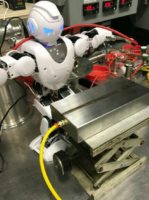U.S. Auto Industry Growth Accelerates in the South
Automakers are rushing to construct assembly plants and battery-making facilities, pouring billions into new factories

Employment estimates based on company reports and are unavailable for some projects. Plant locations are approximate. Some projects listed here are a combination of multiple battery plants in one location.
STANTON, TN—Source: EV Boom Remakes Rural Towns in the American South by Nora Eckert
The U.S. auto industry is accelerating its move south as car companies pour billions of dollars into new factories in Georgia, Kentucky, and Tennessee. Automakers are now rushing to construct assembly plants and battery-making facilities—some sitting on sites the size of 60 football fields.
Auto companies have announced more than $110 billion in EV-related investments in the U.S. since 2018, with about half that sum destined for Southern states, according to the Center for Automotive Research, a nonprofit based in Ann Arbor, Mich. The rest is mostly planned for states in the Great Lakes region, including Michigan, Ohio, and Indiana, the organization's data shows. The Southern transition echoes the industrial migration that began in the first part of the 20th century when Detroit's booming auto sector attracted droves of workers to the area.
The American South has been working for decades to attract automakers, laying veins of waterways and electrical lines and shoveling heaps of dirt to prepare the land for potential new factory megasites. Local governments and technical institutes have partnered to train a new generation of manufacturing workers, including in automotive, even before some of the first construction beams were erected.
Many Southern states have lower energy costs than their Northern counterparts, thanks to a decade of low gas prices due to shale drilling and plans for adding more renewable energy. That's a big draw for EV makers because of the vast energy-consumption needs of battery-making facilities, which can be five times that of a traditional plant. Michigan has an average electricity industrial price of 8.29 cents per kilowatt-hour, compared with 6.41 cents in Tennessee and 7.01 cents in Georgia, according to June 2023 data from the U.S. Energy Information Administration.
Ford Chief Jim Farley said one of the reasons the automaker based its manufacturing campus in Tennessee is because the Tennessee Valley Authority, an electricity company, is one of the largest clean-energy providers in the U.S. The state's lower energy costs also attracted Ford there, he has said. The Tennessee battery plant is a part of the auto maker's joint venture with Korean battery-maker SK On, along with two battery plants in Kentucky.
While the Detroit area will remain influential in many ways—both GM and Ford have headquarters there and it is hub for R&D activity—the manufacturing side of the business is becoming more spread out geographically, auto executives and consultants say.
Ford's investment in Tennessee has also put more pressure on Michigan to actively compete for future bids, said Quentin L. Messer, Jr., CEO of the Michigan Economic Development Corporation, which focuses on creating jobs in the state. Recruiting the thousands of qualified workers needed to make EV plants hum has been challenging, auto executives have said. For Ford's Tennessee plant, one of the biggest barriers to staffing up has been getting the word out, said Lisa Drake, the company's head of EV industrialization.
Looking for a reprint of this article?
From high-res PDFs to custom plaques, order your copy today!






